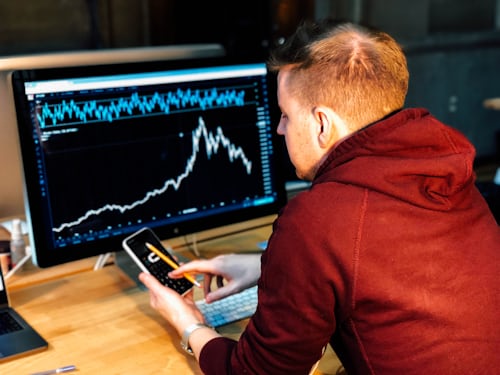First and foremost, these differ in a fund investment by the type of fund in which the capital is invested. On the one hand, money market funds are considered extremely safe and thus low-risk, but on the other hand, the investor has little chance of a relatively high return.
Risks climbed
The situation is very similar with bond funds. However, not in the case where the fund invests part of the assets in speculative bonds such as currency bonds or foreign bonds of certain "critical" states. The debt crisis that has recently come to light in the USA and various European states must be factored in as a serious additional risk. Usually, with bond funds, the chance of a high return is also rather low.
Risks with equity funds
Financial market experts assume that investors have a greater chance of above-average returns when investing in equity funds. As various studies show, the average return on well-managed equity funds over the last 30 years is between 8% and 10% per year.
However, with equity funds in particular, investors must always bear in mind the risk that share prices may also develop negatively over a longer period of time and thus naturally also the value of the fund will shrink. However, investors in https://exnesslatam.com/trading-central-web-tv-de-exness/ can also expect that with a long-term investment in funds - for example over 10 years - they will have to accept a relatively low risk and that they will hardly have to book any losses as a result of the investment. However, this only applies to open-ended investment funds.
Different situation with closed-end funds
For closed-end funds such as ship funds or closed-end real estate funds, investors face a considerably higher risk of loss, but also a higher chance of stronger returns. Apart from this, a whole range of other risks exist for closed-end funds, such as a total loss risk, lack of liquidity, conflicts of interest on the part of the initiators, loss of tax advantages, liability and loss and lack of personal qualification of the fund management.
Default risk
In general, default risk is defined as the risk that a debtor becomes insolvent, i.e. can no longer repay its debts to creditors. The default risk must be accepted by all those who make capital available to another party, which is later to be repaid.
Open-end funds are an exception
Almost all financial products that represent a debt security are affected by default risk. In the case of securities, the default risk is primarily that an issuer may not be able to repay its creditors, e.g. due to liquidity problems or bankruptcy.
Fund investments are safe
In general, it can be said that fund investments have been among the safest on the investment market in Europe for several years. Anyone who invests in a fund buys a good portion of security at the same time.
Accordingly, a fund company is obliged to keep its own assets separate from those of the investors in a so-called special fund. This means that in the event of the fund company's insolvency, the investors' capital is not affected but remains available.




